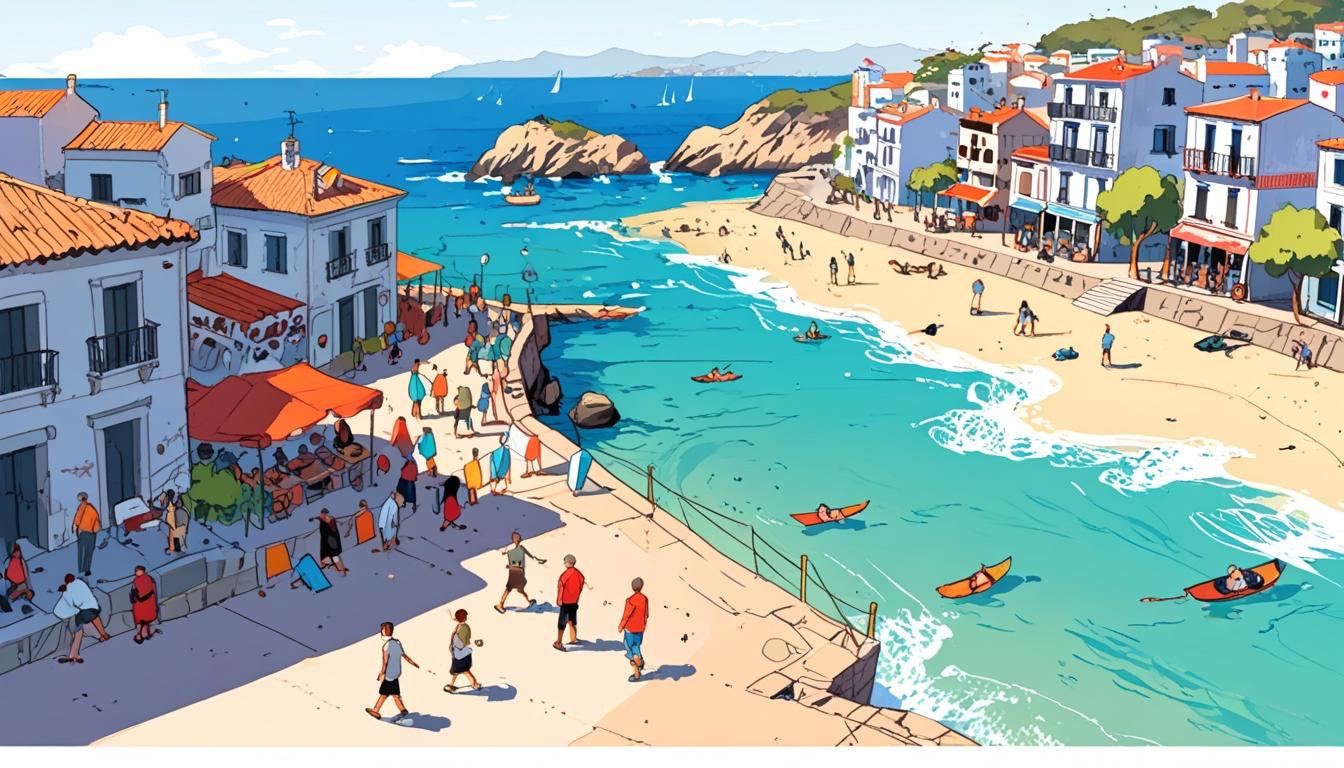A recent warning from Steve Heapy, the CEO of airline Jet2, highlights troubling trends among British tourists regarding their willingness to visit Spain. According to Heapy, there is an increasing sense of unease among potential holidaymakers about their safety and welcome status in Spanish resorts. Reports indicate that inquiries at travel agents and the Jet2 call centre often reflect concerns such as "is Spain safe?" and "are we still welcome in the resort?" This emerging perception, he argues, is becoming a significant issue, turning subjective fears into broader truths that could impact tourism.
This apprehension follows a series of protests across Spain against overtourism, with notable demonstrations originating in April of this year. These protests, which have gained momentum, have been fueled by frustrations over the critical housing crisis exacerbated by the influx of tourists. Activists have even urged visitors to reconsider their travel plans, claiming, "the greed and avarice of hoteliers, politicians, and real estate investors have brought us to an emergency situation." Such sentiments underscore the growing disconnect between resident populations and the tourism industry that once flourished in the country.
The issue is starkly reflected in the housing market, where costs have surged dramatically. A report revealed that rents have risen over 20% in just five years, significantly impacting local residents. Spain's shortage of housing units is dire, with an estimated shortfall of 600,000, requiring a profound response from the government. Plans are underway to invest approximately €1.3 billion of European Union funding into industrialised construction approaches, which could create 15,000 new homes annually. This initiative is intended not only to expedite construction processes but also to address the deeply rooted problem of unaffordable housing that disproportionately affects younger generations and working families.
The multitude of protests indicates a broader discontent with structural inequalities in the housing market. According to estimates, rents in major cities like Madrid and Barcelona have almost doubled in the past decade, leaving many unable to afford independent living. The government’s measures, including rent controls and initiatives to limit short-term tourist rentals, are steps towards alleviating these concerns. However, public sentiment continues to reflect scepticism, with critics pointing out that these efforts may not adequately resolve the underlying housing crisis.
Barcelona's recent policy to phase out tourist rentals by 2029 has ignited controversy among property owners, leading many to view it as an expropriation of their income stream. In a response to these legislative changes, property owners have mobilised legal actions, arguing that such policies threaten their investments. Yet, this conflict has also received considerable support from local residents who see the move as vital for improving living conditions in their communities.
Against this backdrop, Spain has attracted record numbers of tourists, with approximately 94 million visitors recorded last year. However, the economic benefits of this tourism boom are not evenly felt among residents. Heapy’s concerns point towards a potential decline in visitor numbers if perceptions around safety and hospitality continue to worsen. He emphasises the necessity for legislative measures around unlicensed tourism, arguing that private lettings platforms contribute to dangerous situations for guests, where unregulated properties may pose significant risks.
As Spain grapples with these intertwined issues of housing affordability and its dependence on tourism, the future remains uncertain. The challenge lies in reconciling the booming economy driven by tourism with the pressing need for housing that caters to locals, thereby fostering a more sustainable coexistence between residents and the thriving tourism industry.
Reference Map
- Paragraphs 1, 2, 3, 4, 5, 6, 7
- Paragraph 3, 4
- Paragraph 3, 4
- Paragraph 4
- Paragraph 4, 5
- Paragraph 6, 7
- Paragraph 6
Source: Noah Wire Services
